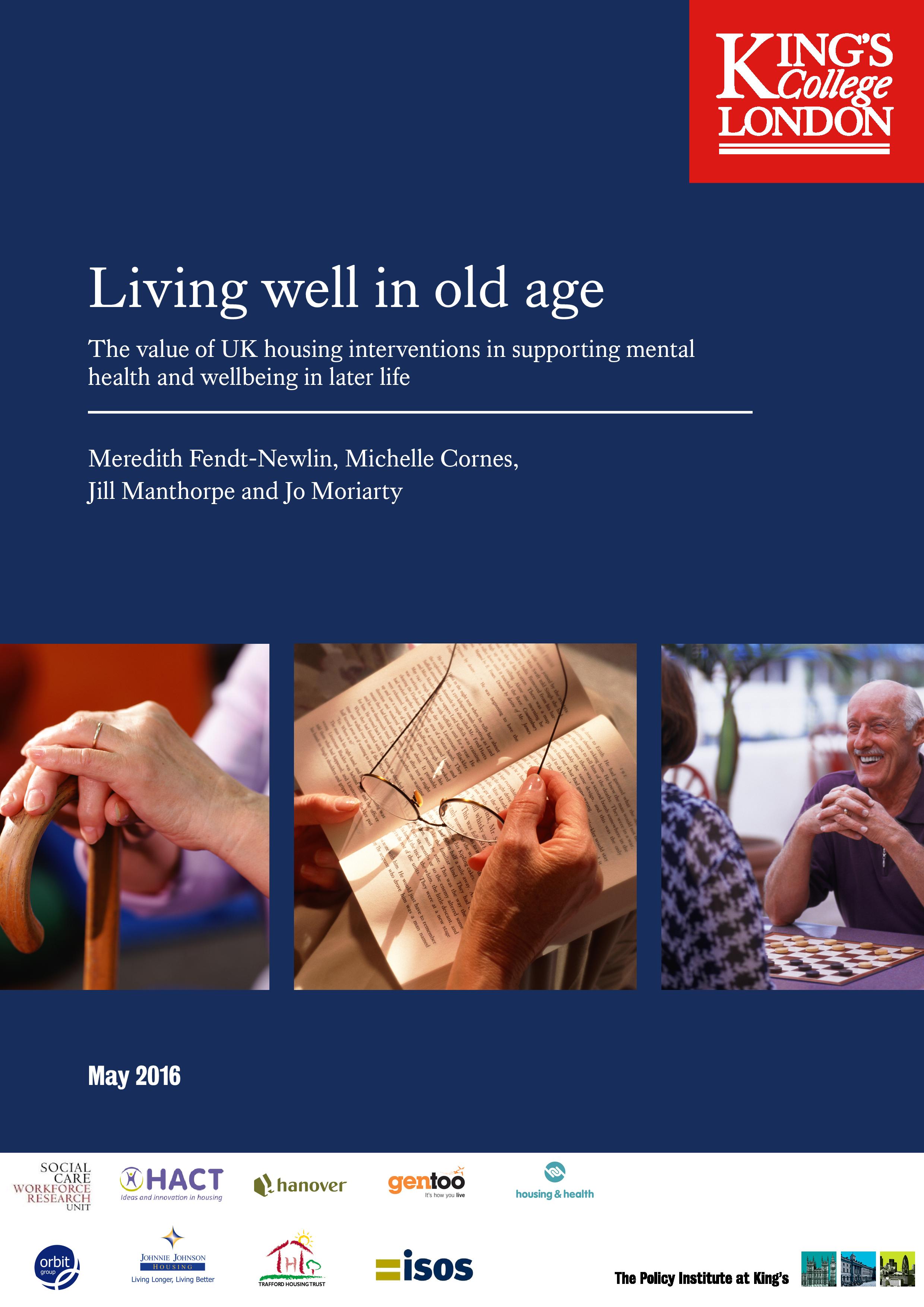 The authors of Living well in old age. The value of UK housing interventions in supporting mental health and wellbeing in later life introduce the report, which is published today.
The authors of Living well in old age. The value of UK housing interventions in supporting mental health and wellbeing in later life introduce the report, which is published today.
Housing in later life is more than just a roof or a matter of getting upstairs. Housing-related services can help many people by supporting their mental and physical wellbeing in later life. A newly published review of UK housing interventions focuses on their contribution to mental health in particular since this area of wellbeing often gets overlooked. Housing care and support can help people reduce the risks of depression or other problems getting worse and can make a difference in the lives of people with severe disabilities.
The review was undertaken by a research team at the Social Care Workforce Research Unit at King’s College London. It was commissioned by HACT on behalf of a group of social housing providers and developmental bodies who are keen to place on record the many links between housing, care and health services practice (*).
‘While researchers are notorious for calling for more research,’ said Professor Jill Manthorpe one of the authors of the report, ‘in this area of practice and service commissioning we do need more evidence of what works. Other research also needs to take into account what is being offered by the housing sector when it is investigating health or social care. For older people the organisational boundaries between housing, social care and health services are artificial – where you live; who supports you and how – are all interconnected – or should be’.
Three key messages emerged from the review of the evidence added Dr Michelle Cornes: ‘First, this review is relevant to people working in service planning and commissioning in different public sectors. For them, it is timely as there is a great deal of talk about integration – but often this concentrates on health and social care, or just health services. Housing needs to be considered in these debates.
Second, while strategies and plans are important, there is good evidence that relationships between managers and practitioners from different sectors are important at local level. They are mutually beneficial but can get side-lined when times are difficult.
Third, this review shows the value of taking a UK perspective since many innovations are occurring in different parts of the UK and need to be shared. Social housing has different national funding but there are many valuable insights from different parts of the UK – ranging from rural to inner city areas.’
Commissioner of the research review, Andrew van Doorn, Deputy Chief Executive HACT, further commented: ‘Our ageing population is something to be embraced and celebrated. Housing associations are constantly exploring how best to support people to enjoy their older age and live as independently as possible; and good mental health is a key part of this. But in an environment of increasing resource pressures, understanding what works and where best to spend resources is critical. Building an evidence base around mental wellbeing in later life that directs services and investment is a key part of housing’s future, and this review provides a firm foundation on which to build.’
*The housing providers that contributed to the review include:
HACT – www.hact.org.uk Johnnie Johnson – www.jjhousing.co.uk Orbit – www.orbit.org.uk Trafford – www.traffordhousingtrust.co.uk Hanover – www.hanover.org.uk Gentoo – www.gentoogroup.com Isos – www.isoshousing.co.uk
Read the report:
Living well in old age: The value of UK housing interventions in supporting mental health and wellbeing in later life by Meredith Fendt-Newlin, Michelle Cornes, Jill Manthorpe and Jo Moriarty, Social Care Workforce Research Unit, Policy Institute at King’s, King’s College London.